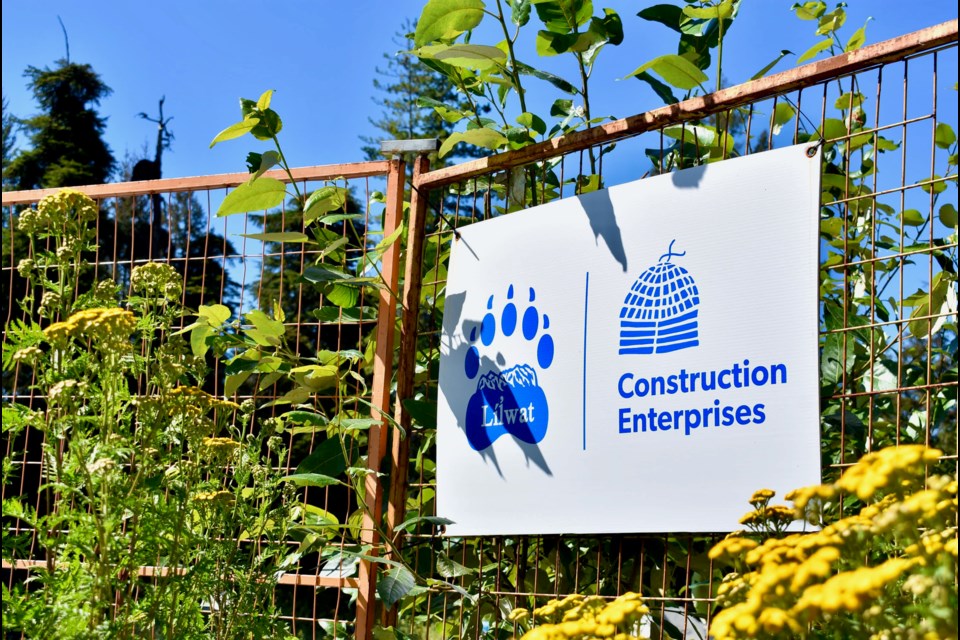On July 28, the First Nations Bank of Canada (FNBC) announced it will provide financing for Lil’wat’s Tseqwtsúqum̓ development in Whistler’s Function Junction, marking the single largest investment made to date under its Indigenous Land Development Program. FNBC did not disclose the precise figure going towards the Nation’s development.
The funding package, delivered in partnership with the Canada Infrastructure Bank (CIB), will support Lil’wat Business Group’s (LBG) mixed-use, Indigenous-led, 5.3-acre development, which promises new commercial space and workforce housing at the entrance to Whistler’s industrial core.
“We are proud to support the Lil’wat Business Group and the Tseqwtsúqum̓ project, which will not only contribute to the economic resilience of the Lil’wat Nation but also create a lasting impact on the broader Whistler community,” said FNBC president and CEO Bill Lomax in a July 28 press release.
Tseqwtsúqum̓—pronounced “Chek-choo-koom”—sits between Highway 99, the railway tracks and Alpha Lake Road. The name means “lake surrounded by fertile marshlands” in Ucwalmícwts, the traditional language of the Líl̓wat Nation.
The lands, located on Lil’wat’s traditional territory, are owned by the Nation through the Legacy Land Agreement of the 2010 Olympic and Paralympic Winter Games.
Tseqwtsúqum̓ was awarded a conditional development permit by the Resort Municipality of Whistler in October 2017.
The development will be fully owned by the Nation and will feature three buildings with long-term housing options, a fuelling station and the potential for a major grocery outlet, according to LBG’s project page.
The project has grown in scale since it was originally proposed in 2017. The original plan pitched 18 units of workforce housing. Subsequent development permits and amendments saw the number of units rise to 48 and 72.
The zoning process is ongoing. LBG announced in its July newsletter it was “actively working through the rezoning phase to create more flexible and attractive leasing opportunities for the planned three-building commercial residential development and gas station.”
LBG’s development was originally slated for occupancy in spring 2019, before being delayed more than a year to Fall 2020. During the September 2024 Pemberton Chamber of Commerce Lunch and Learn, LBG CEO Rosemary Stager indicated site work would begin in spring 2025.
“This project is a major milestone for the Lil’wat Nation, reflecting our growth and our capacity to lead meaningful economic development on our traditional territory,” said Stager. “Tseqwtsúqum̓ is the largest project to date for LBG and exemplifies our commitment to building a strong, self-sustaining future that honours our cultural values.”
FNBC was founded in 1996 to serve the Indigenous marketplace. It is 88-per-cent Indigenous owned and controlled.
The Indigenous Land Development Program, administered by FNBC in partnership with CIB, provides below-market rate loans to help Indigenous communities in an effort to remove longstanding financial barriers Indigenous Nations face when building on their land. CIB agreed last year to put $100 million into the program.
The FNBC announced the first five deals under the Indigenous Land Development Project in February 2025, with a combined value of $140 million.
“This is more than a financial transaction. It’s a step toward reconciliation, opportunity, and self-determination,” said Stager.
The CIB also framed the agreement as a model for future partnerships.
“In addition to supplying housing to a region with high demand, Lil’wat Nation businesses and community members across generations will also benefit from the project through long-term employment and cultural revitalization opportunities,” said CIB CEO Ehren Cory.
LBG, based in Mount Currie, oversees the Nation’s for-profit ventures and has stated Tseqwtsúqum̓ will generate revenues and employment for Nation members and non-Indigenous residents throughout its lifespan.




